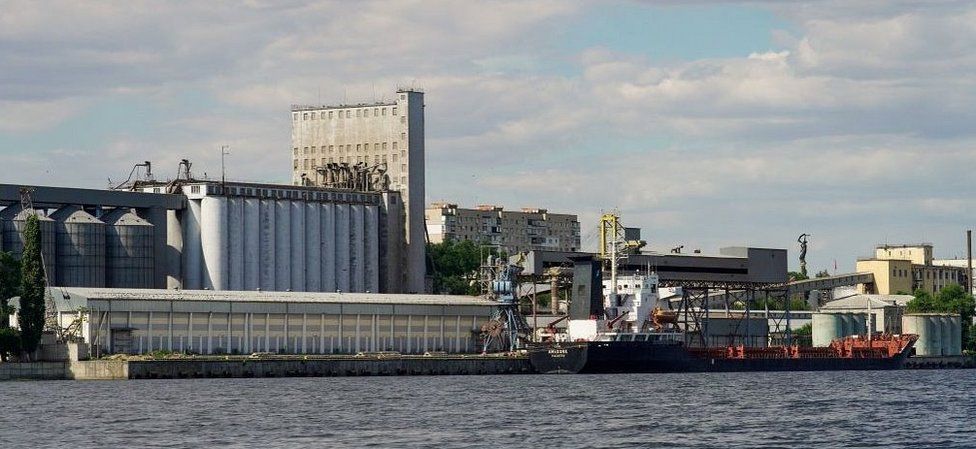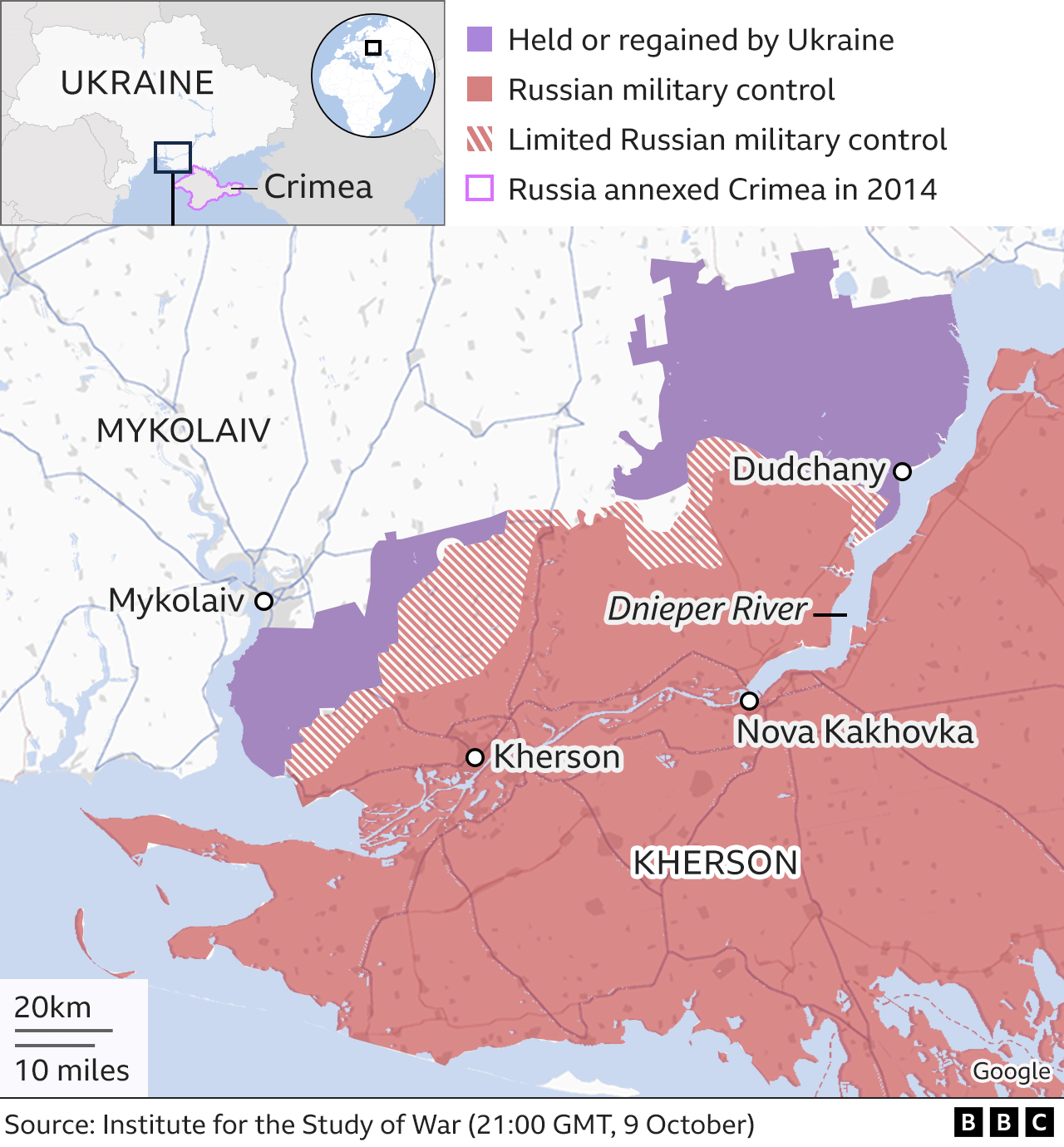The commander of Russian forces in Ukraine says the situation in the southern city of Kherson is “difficult” and residents are to be evacuated.
General Sergei Surovikin said Ukrainian troops using Himars rockets were hitting the city’s infrastructure and housing. He spoke on Russian state TV.
“The Russian army will above all ensure the safe evacuation of the population” of Kherson, he said.
His rare admission of big problems was echoed by a top local official.
Russian-installed regional official Kirill Stremousov warned Kherson residents that “in the very near future” Ukrainian troops would launch an assault on the city.
“Please take my words seriously – I’m talking about evacuating as quickly as possible,” he said on the Telegram messaging service. He added that people on the River Dnieper’s west bank (called Dnipro in Ukraine) were most at risk.
This was confirmed by regional governor Vladimir Saldo, who was also appointed by Russia. Four towns on or near the west bank were to be evacuated in what he called an “organised, gradual displacement” of civilians.
Kherson was the first big city to fall to the Russians, back in February.
Ukrainian forces have been steadily retaking nearby territory for the past few weeks. They have pushed as far as 30km (19 miles) south along the Dnieper, threatening to trap Russian troops.
“As a whole the situation in the special military operation zone can be described as tense,” Gen Surovikin said.
Kherson is the only Ukrainian regional capital to have been captured by the Russians in their invasion. The Kremlin now claims Kherson and three other Ukrainian regions to be part of Russia – a claim rejected internationally.
Infrastructure damage
Gen Surovikin, who has a reputation for harsh methods, said Ukraine’s volley of rockets had damaged Kherson’s Antonivsky Bridge and the Kakhovka hydroelectric dam, blocking traffic along those key arteries.
That had created supply problems for essential services, namely food deliveries, water and electricity, he said.
Vladimir Saldo accused Ukrainian forces of building up for a large-scale offensive and planning to destroy the Kakhovka dam, flooding the area.
There is no evidence of that and the BBC has been unable to verify the level of hardship in Kherson.
The general also said the Ukrainians were launching constant attacks across a wide front – in the areas of Kupiansk and Lyman in the east and, in the south, on the Mykolaiv-Krivyi Rih front.
Mr Saldo said on Wednesday that the evacuation would involve some 50-60,000 civilians over a six-day period, Tass news agency reported. If Russia forces people to leave their homes it could constitute a war crime, under the UN’s definition.

In March, Ukraine said Russia illegally deported thousands of people to its territory from Mariupol, a city devastated by Russian shelling.
Under its definition of war crimes the UN includes: “The transfer, directly or indirectly, by the occupying power of parts of its own civilian population into the territory it occupies, or the deportation or transfer of all or parts of the population of the occupied territory”.
The Russian State Duma – the lower house of parliament – discussed plans on Tuesday for transferring Kherson residents to Russia. Deputy Prime Minister Marat Khusnullin said they would be offered new homes anywhere in Russia, and the government would provide financial assistance.
According to Russia’s Vremya TV news, each family member will get 100,000 roubles (£1,433; $1,626) to replace household goods they were forced to abandon.
Kherson’s pre-war population was nearly 300,000, but Ukrainian officials estimate that about half that number have fled the city.
Gen Surovikin is the new commander of Russia’s war in Ukraine – what the Kremlin calls a “special military operation”.
He is nicknamed General Armageddon and is a veteran of Russia’s wars. In Syria he oversaw Russian bombing raids that killed many civilians. He has also commanded troops accused of human rights abuses in Chechnya.
Gen Surovikin was speaking on a day of further Russian drone and missile strikes on Kyiv and other Ukrainian cities, many of them targeting Ukraine’s electricity supply. Parts of Kyiv now have no power or running water.
Ukraine’s President Volodymyr Zelensky said that 30% of his country’s power stations had been destroyed in the past eight days.


Source: BBC
